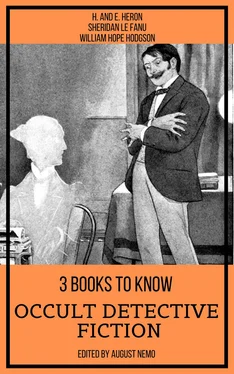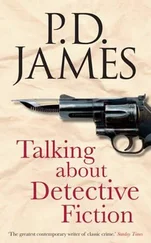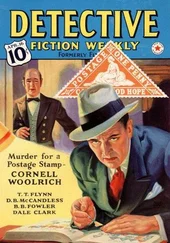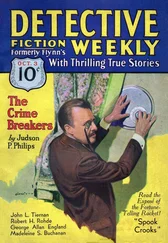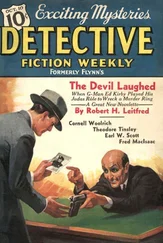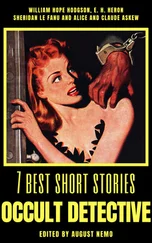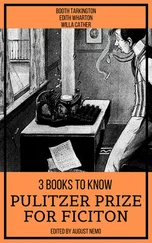There was a coldness, it seemed to me, beyond her years, in her smiling melancholy persistent refusal to afford me the least ray of light.
I cannot say we quarreled upon this point, for she would not quarrel upon any. It was, of course, very unfair of me to press her, very ill-bred, but I really could not help it; and I might just as well have let it alone.
What she did tell me amounted, in my unconscionable estimation—to nothing.
It was all summed up in three very vague disclosures:
First—Her name was Carmilla.
Second—Her family was very ancient and noble.
Third—Her home lay in the direction of the west.
She would not tell me the name of her family, nor their armorial bearings, nor the name of their estate, nor even that of the country they lived in.
You are not to suppose that I worried her incessantly on these subjects. I watched opportunity, and rather insinuated than urged my inquiries. Once or twice, indeed, I did attack her more directly. But no matter what my tactics, utter failure was invariably the result. Reproaches and caresses were all lost upon her. But I must add this, that her evasion was conducted with so pretty a melancholy and deprecation, with so many, and even passionate declarations of her liking for me, and trust in my honor, and with so many promises that I should at last know all, that I could not find it in my heart long to be offended with her.
She used to place her pretty arms about my neck, draw me to her, and laying her cheek to mine, murmur with her lips near my ear, "Dearest, your little heart is wounded; think me not cruel because I obey the irresistible law of my strength and weakness; if your dear heart is wounded, my wild heart bleeds with yours. In the rapture of my enormous humiliation I live in your warm life, and you shall die—die, sweetly die—into mine. I cannot help it; as I draw near to you, you, in your turn, will draw near to others, and learn the rapture of that cruelty, which yet is love; so, for a while, seek to know no more of me and mine, but trust me with all your loving spirit."
And when she had spoken such a rhapsody, she would press me more closely in her trembling embrace, and her lips in soft kisses gently glow upon my cheek.
Her agitations and her language were unintelligible to me.
From these foolish embraces, which were not of very frequent occurrence, I must allow, I used to wish to extricate myself; but my energies seemed to fail me. Her murmured words sounded like a lullaby in my ear, and soothed my resistance into a trance, from which I only seemed to recover myself when she withdrew her arms.
In these mysterious moods I did not like her. I experienced a strange tumultuous excitement that was pleasurable, ever and anon, mingled with a vague sense of fear and disgust. I had no distinct thoughts about her while such scenes lasted, but I was conscious of a love growing into adoration, and also of abhorrence. This I know is paradox, but I can make no other attempt to explain the feeling.
I now write, after an interval of more than ten years, with a trembling hand, with a confused and horrible recollection of certain occurrences and situations, in the ordeal through which I was unconsciously passing; though with a vivid and very sharp remembrance of the main current of my story.
But, I suspect, in all lives there are certain emotional scenes, those in which our passions have been most wildly and terribly roused, that are of all others the most vaguely and dimly remembered.
Sometimes after an hour of apathy, my strange and beautiful companion would take my hand and hold it with a fond pressure, renewed again and again; blushing softly, gazing in my face with languid and burning eyes, and breathing so fast that her dress rose and fell with the tumultuous respiration. It was like the ardor of a lover; it embarrassed me; it was hateful and yet over-powering; and with gloating eyes she drew me to her, and her hot lips traveled along my cheek in kisses; and she would whisper, almost in sobs, "You are mine, you shall be mine, you and I are one for ever." Then she had thrown herself back in her chair, with her small hands over her eyes, leaving me trembling.
"Are we related," I used to ask; "what can you mean by all this? I remind you perhaps of someone whom you love; but you must not, I hate it; I don't know you—I don't know myself when you look so and talk so."
She used to sigh at my vehemence, then turn away and drop my hand.
Respecting these very extraordinary manifestations I strove in vain to form any satisfactory theory—I could not refer them to affectation or trick. It was unmistakably the momentary breaking out of suppressed instinct and emotion. Was she, notwithstanding her mother's volunteered denial, subject to brief visitations of insanity; or was there here a disguise and a romance? I had read in old storybooks of such things. What if a boyish lover had found his way into the house, and sought to prosecute his suit in masquerade, with the assistance of a clever old adventuress. But there were many things against this hypothesis, highly interesting as it was to my vanity.
I could boast of no little attentions such as masculine gallantry delights to offer. Between these passionate moments there were long intervals of commonplace, of gaiety, of brooding melancholy, during which, except that I detected her eyes so full of melancholy fire, following me, at times I might have been as nothing to her. Except in these brief periods of mysterious excitement her ways were girlish; and there was always a languor about her, quite incompatible with a masculine system in a state of health.
In some respects her habits were odd. Perhaps not so singular in the opinion of a town lady like you, as they appeared to us rustic people. She used to come down very late, generally not till one o'clock, she would then take a cup of chocolate, but eat nothing; we then went out for a walk, which was a mere saunter, and she seemed, almost immediately, exhausted, and either returned to the schloss or sat on one of the benches that were placed, here and there, among the trees. This was a bodily languor in which her mind did not sympathize. She was always an animated talker, and very intelligent.
She sometimes alluded for a moment to her own home, or mentioned an adventure or situation, or an early recollection, which indicated a people of strange manners, and described customs of which we knew nothing. I gathered from these chance hints that her native country was much more remote than I had at first fancied.
As we sat thus one afternoon under the trees a funeral passed us by. It was that of a pretty young girl, whom I had often seen, the daughter of one of the rangers of the forest. The poor man was walking behind the coffin of his darling; she was his only child, and he looked quite heartbroken.
Peasants walking two-and-two came behind, they were singing a funeral hymn.
I rose to mark my respect as they passed, and joined in the hymn they were very sweetly singing.
My companion shook me a little roughly, and I turned surprised.
She said brusquely, "Don't you perceive how discordant that is?"
"I think it very sweet, on the contrary," I answered, vexed at the interruption, and very uncomfortable, lest the people who composed the little procession should observe and resent what was passing.
I resumed, therefore, instantly, and was again interrupted. "You pierce my ears," said Carmilla, almost angrily, and stopping her ears with her tiny fingers. "Besides, how can you tell that your religion and mine are the same; your forms wound me, and I hate funerals. What a fuss! Why you must die—everyone must die; and all are happier when they do. Come home."
"My father has gone on with the clergyman to the churchyard. I thought you knew she was to be buried today."
Читать дальше
